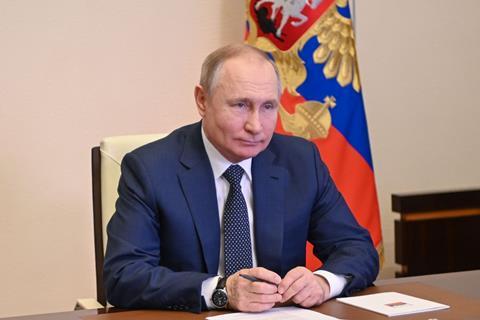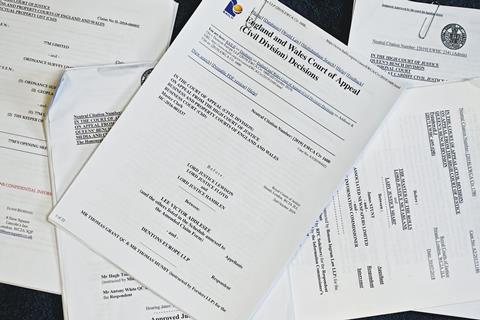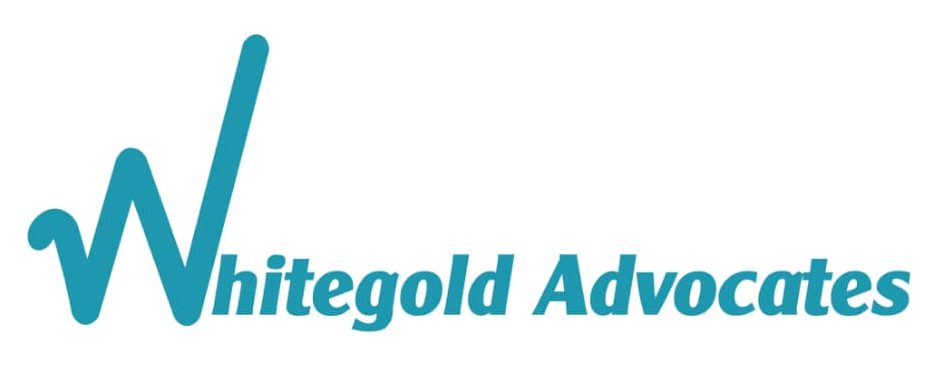Articles
Twitter feed
Practice Areas
Subscribe to our newsletter

DLA Piper to manage pro bono support for Ukrainians
City firm DLA Piper has stepped in to run an advice service for Ukrainians seeking refuge in the UK that was quickly set up by immigration lawyers following Russia’s invasion.
The website Ukraine Advice Project UK has registered over 430 volunteer lawyers and given pro bono advice in nearly 700 requests since it was set up on 28 February by lawyers Jennifer Blair, Miranda Butler, Simon Cox, Alex Piletska and John Vassiliou, supported by CJ McKinney of Free Movement.
The organisation announced last Friday that the project had grown to an ‘unmanageable’ scale for the six friends, who set up the project in their spare time. ‘We are therefore delighted to confirm that DLA Piper has agreed to provide us with desperately needed help administering volunteers and requests for advice,’ the organisation said.
‘DLA Piper’s pro bono team will draw on their experience running a similar initiative for Afghan refugees to triage and manage requests for advice and offers of assistance from volunteer lawyers.’
The website states that no information or personal data will be shared or made available to anyone in or associated with DLA Piper’s Moscow office.
Meanwhile, Hogan Lovells has told the Gazette that it has set up a joint pro bono scheme with other law firms to allow volunteer lawyers to provide basic legal information to individuals about the UK Ukrainian refugee scheme.

Calls for ad-hoc tribunal to try Putin
Aswift ad hoc tribunal should be set up to put Vladimir Putin on trial for war crimes committed during the invasion of Ukraine, lawyers have argued.
More than 30 leading lawyers and academics from Goldsmiths University of London and other institutions have signed an open letter, seen by the Gazette, calling for urgent action to bring Putin, and those around him, to justice.
They suggest an ad hoc justice mechanism similar to those set up by the United Nations for Yugoslavia and Rwanda to prosecute those responsible for genocide, war crimes, and other atrocities and serious humanitarian violations in those conflicts.
Sir Geoffrey Nice QC, who prosecuted the former president of Yugoslavia, Slobodan Milosovic, for war crimes before the International Criminal Tribunal for the former Yugoslavia and the former Conservative attorney general, Dominic Grieve QC, have signed the letter.
Other signatories include the barristers Jessica Simor QC, Maya Sikand QC, Leslie Thomas QC and Adam Wagner, and Professor Dimitrios Giannoulopoulos, head of the law department at Goldsmiths. They call on the UK, USA and France to put political pressure on Russia to accept the authority of the International Court of Justice (IJC) and the International Criminal Court ICC).
If Russia refuses, they said, ‘the international legal order should press for an immediate and swift ad hoc justice mechanism to bring Putin, and those around him, to justice’.
They said: ‘Public realisation of the unfolding tragedy in Ukraine presents a unique opportunity to renew our commitment to international law and international human rights.’
But warned that public support may ebb once the war is over, and urged the international community to act quickly.
‘While the window is still open politicians around the globe must use public empathy with Ukraine’s plight as a driver to move the international society forward, and the Russian war machine backwards, and to ensure “never again” is not empty words,’ they wrote.
The International Criminal Court this week began an investigation into Russia’s invasion of Ukraine after 39 countries – including the UK – backed the move.

Public law not very public, research suggests
Little over half of judicial review rulings handed down by the courts make it on to the main free database of court judgments, according to new research. A study by experts from the University of York, working with London firm Mishcon de Reya, found that, between 2015 and 2020 only 55% of 5,408 administrative court judgments identified by a commercial subscription service appeared on the website of the British and Irish Legal Information Institute (BAILII).
The authors say access to public law judgments ‘matters a great deal’. Access to judgments can shape legal advice and also influence public policy.
The biggest gap in publication appears to be with judgments given ex tempore rather than handed down as Word documents, the team concludes. While a stenographer is sometimes brought in to court to transcribe these judgments in real time, there is currently no infrastructure in place to enable HM Courts & Tribunals Service to acquire such transcriptions.
The study found that only 55% of judicial review judgments are posted on the free BAILII website
‘It is important to caution against any suggestion that ex tempore judgments are somehow inherently less important or otherwise matter less,’ the authors comment in the journal of the UK Constitutional Law Association. ‘While some judgments may be recognised immediately as important, it is, particularly given the multi-layered value of judgments, not always apparent which judgments may be deemed valuable at some future point.’ For example, they point out, a string of seemingly simple decisions may be used to build important arguments and judgments decades later. ‘Similarly, it is impossible to tell which judgments may be important for future research—cases that may seem routine may make up an important dataset in the future.’
They conclude that public lawyers, whether in research or practice, should pay close attention to this issue, particularly as the government is reshaping how judgments are managed and made available through its initiative to make judgments available via a National Archives website due to go live next month. ‘The gap in the availability of judgments we have examined in this post shows that an important part of public law is not meaningfully public, and ongoing changes ought to be seen as an opportunity to progress from that unsatisfactory position rather than entrench it.

